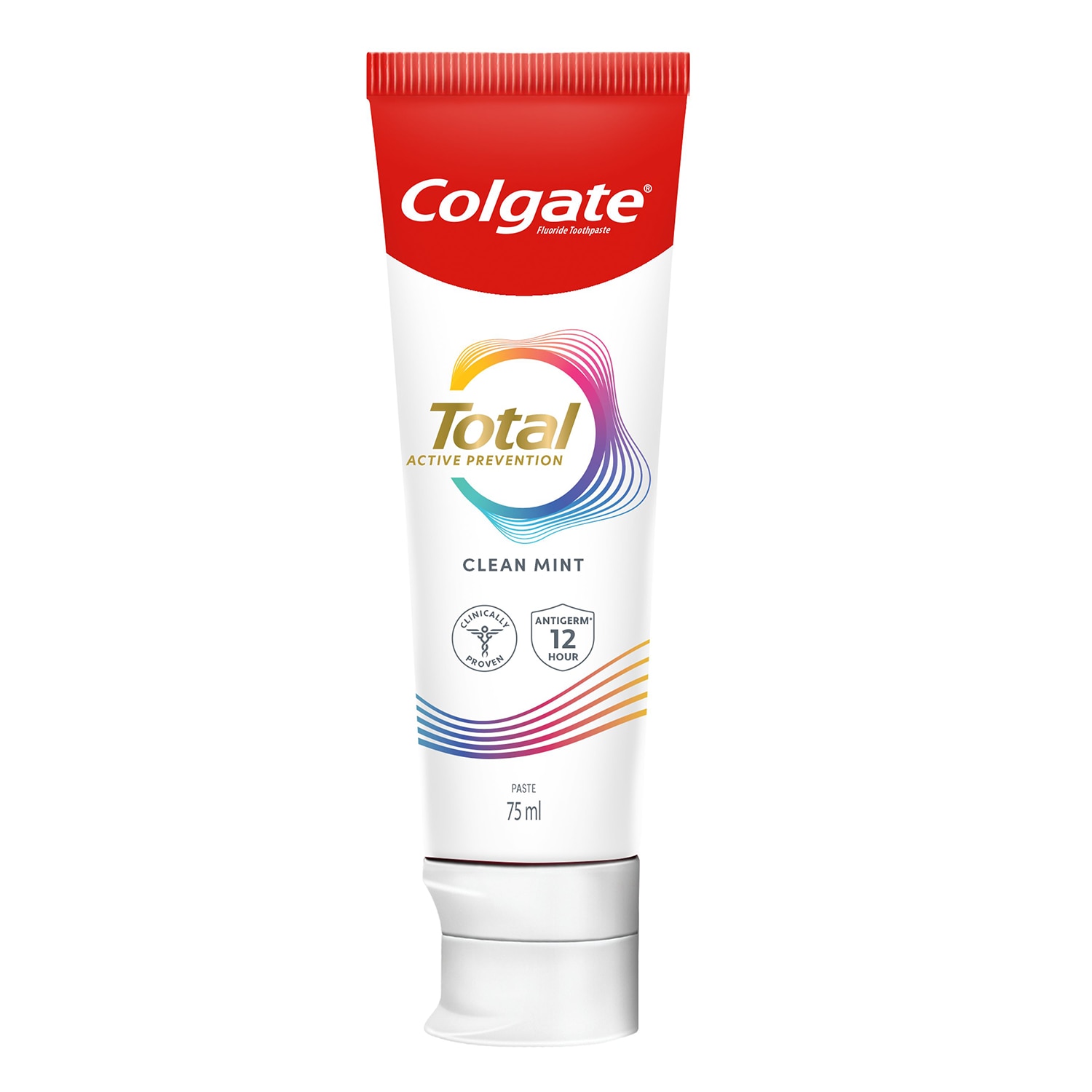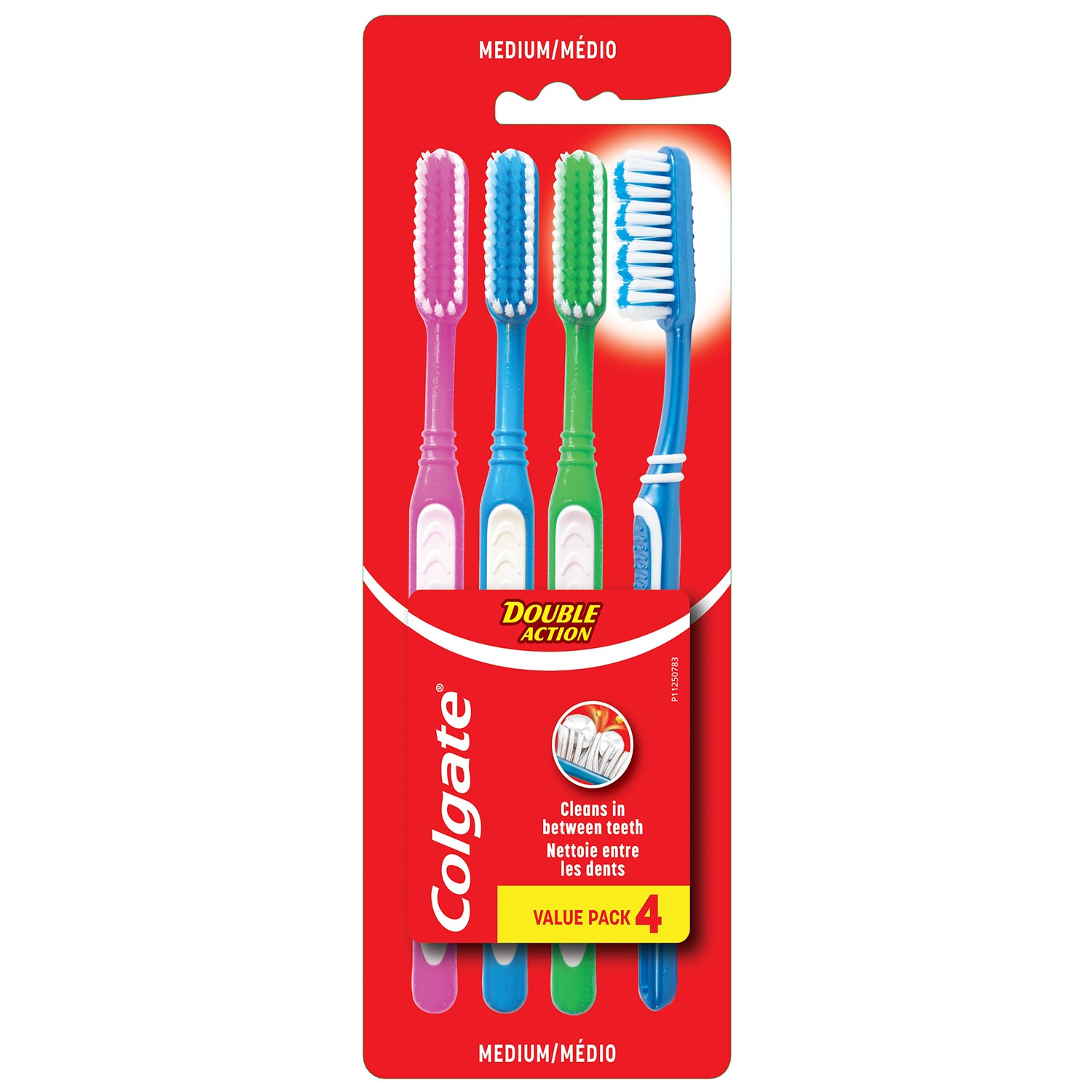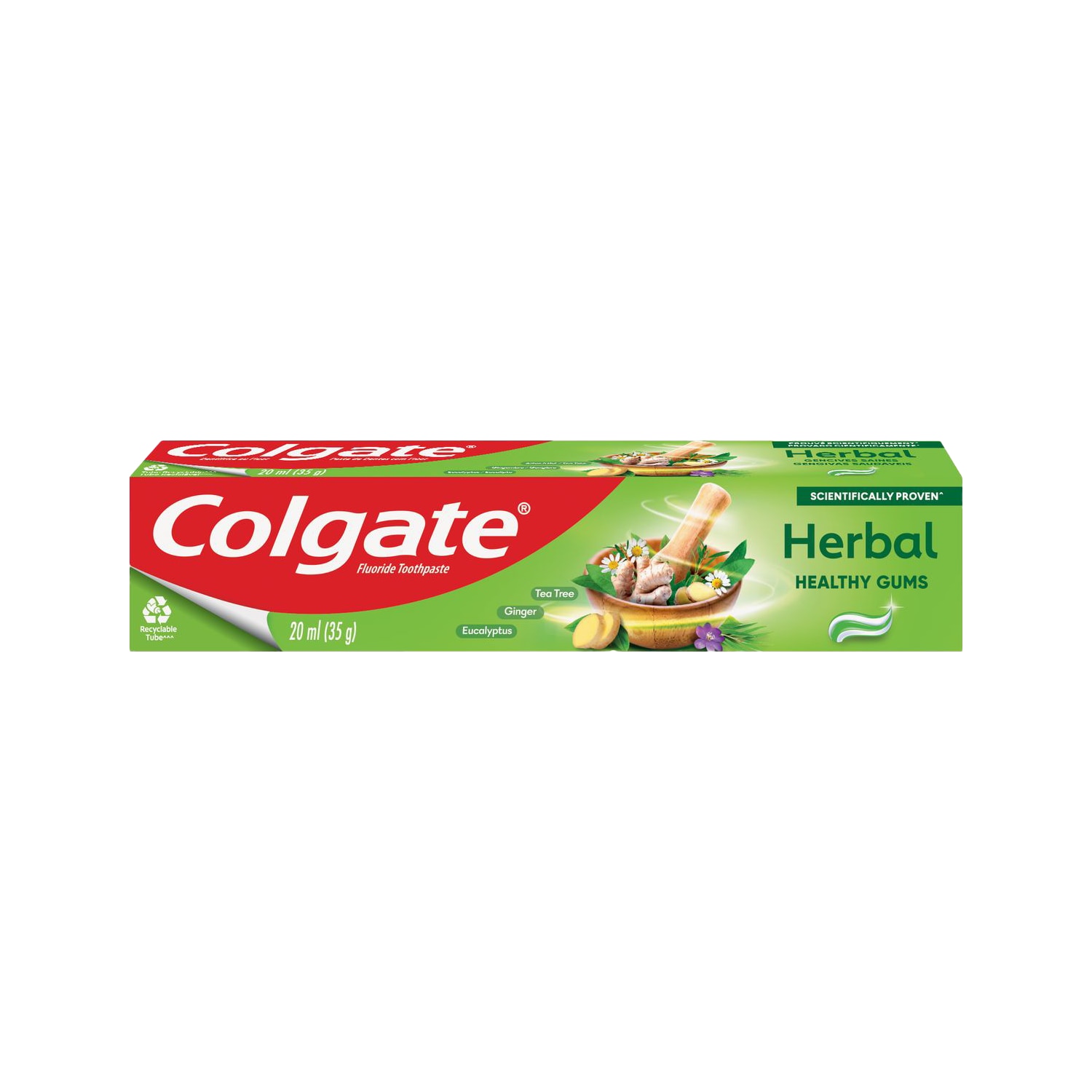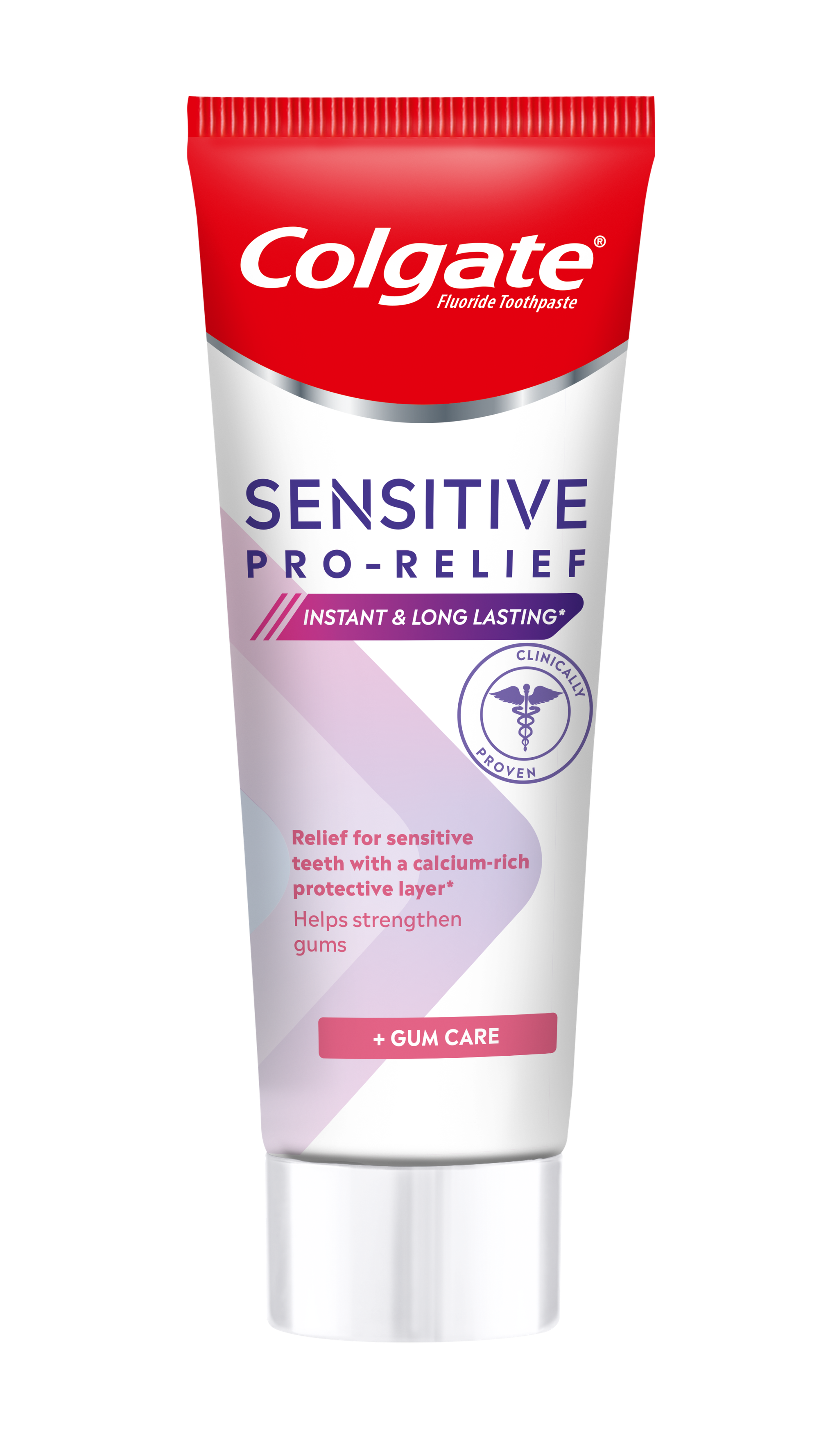- Colgate® | Toothpaste, Toothbrushes & Oral Care Resources
- Colgate® Sensitive Pro-Relief
TASTE LIFE FULLY WITHOUT SENSITIVITY*
Colgate® Sensitive Pro-Relief ™
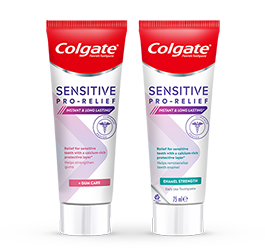
TASTE LIFE FULLY WITHOUT SENSITIVITY*
Colgate® Sensitive Pro-Relief ™
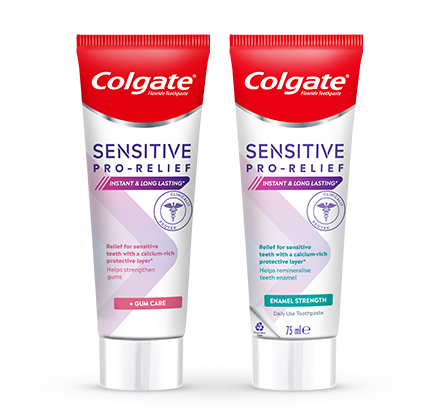
Enjoy life again, with the Colgate® Sensitive Pro-Relief toothpaste range. Each variant is specially formulated to help you fight tooth sensitivity so you can get back to the things that make you smile.
Colgate® Sensitive Pro-Relief offers a clinically proven solution to reduce pain with long-lasting sensitivity relief, cavity protection and refreshing flavour.
How does it work? Colgate® Sensitive Pro-Relief works by plugging the channels that lead to sensitive tooth nerves to help relieve sensitivity. It creates a long-lasting protective barrier that acts as a seal against sensitivity with regular use.
For everyday protection and refreshing relief, try Colgate® Sensitive Pro-Relief.
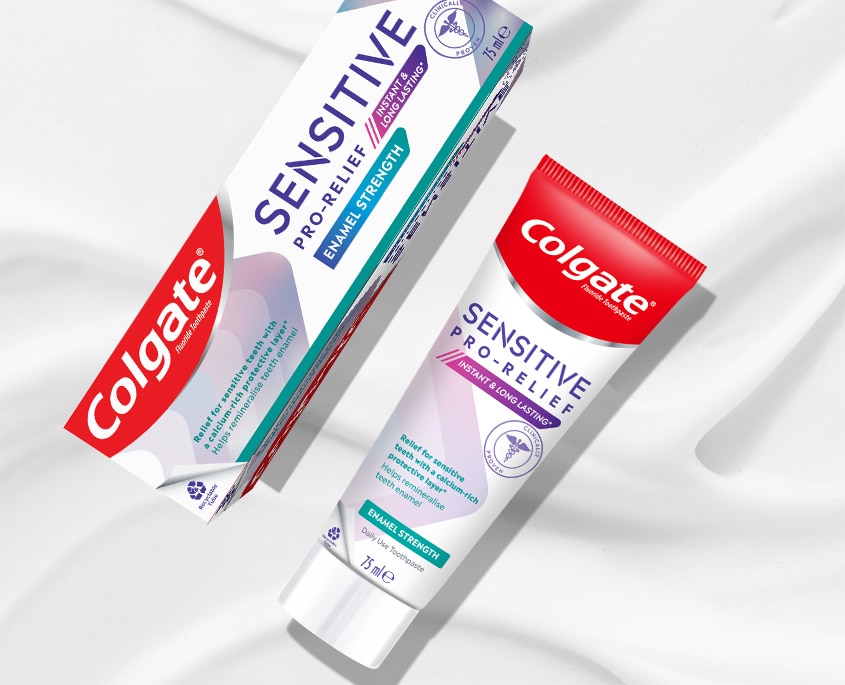
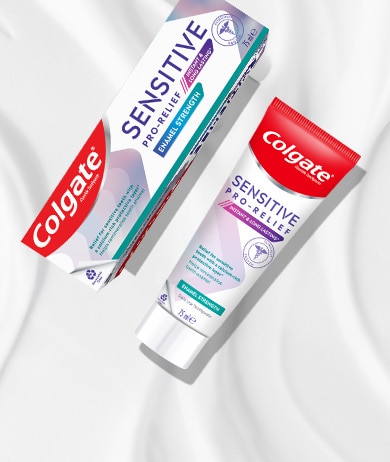
Colgate® Sensitive Pro-Relief™ Enamel Strength Toothpaste
Colgate® Sensitive Pro-Relief Enamel Strength works as a shield that blocks pathways to pain instantly. Use regularly to enjoy long-lasting relief from sensitivity*.
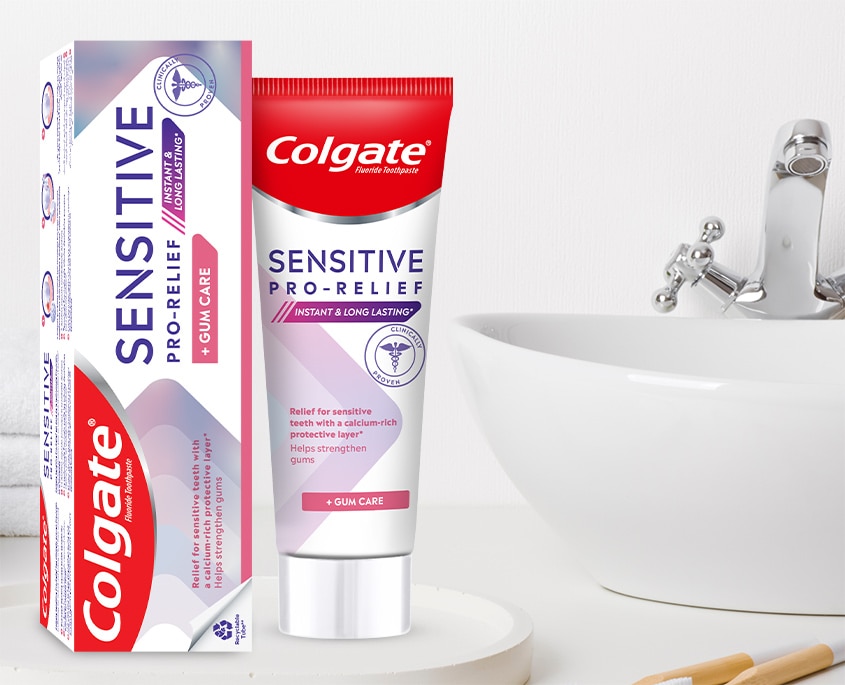
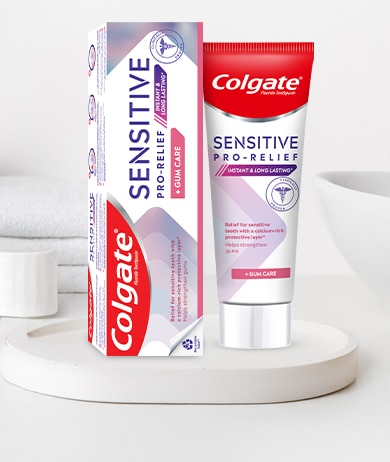
Colgate®Sensitive Pro-Relief™ Repair & Prevent + Gum Care Toothpaste
Receding gums and enamel damage can cause sensitivity. Colgate® Sensitive Pro-Relief Repair & Prevent +Gum Care toothpaste offers instant* and lasting relief* - it strengthens gums, and helps prevent sensitivity for healthier teeth.
Colgate Did You Know? - Sensitive Teeth
-
Tooth sensitivity or dentin hypersensitivity is a very common condition that affects a lot of people around the world. It is experienced as a sharp pain, and is triggered by eating hot or cold foods, drinking hot or cold beverages, breathing cold air, or eating sugary or acidic foods.
This occurs when the enamel is worn down or if the gum line is recessed. In both cases the dentin (the layer below the enamel in the crown of the tooth) is exposed. -
There are several reasons dentin can be exposed, leading to sensitivity.
- Gum recession as a result of age or brushing too hard can cause tooth sensitivity. Gum disease can cause gum recession.
- Acidic beverages can cause enamel to erode, thus exposing the dentin.
- Tooth grinding can cause sensitivity because enamel erodes, exposing dentin. This can cause most or all teeth to feel sensitive.
- Brushing with abrasive toothpaste, brushing too hard or brushing more than three times a day could wear down enamel.
- A chipped or fractured tooth may expose the dentin and cause sensitivity.
-
Tooth pain has a wide range of causes and can be difficult to diagnose on your own. The most common causes are damage to your teeth or mouth and problems due to improper dental hygiene or diet.
Understandably, your pain might be your biggest priority, but it’s essential to treat the toothache's underlying cause. Serious tooth pain will likely require treatment from a dental professional.
Here are some reasons why your tooth is in pain:- Tooth Decay
- Sensitive Tooth
- Damaged Tooth or Filling
- Bacteria Infection (Abscessed Tooth)
- Tooth Erupting from Gums
- Gum Disease
- Repetitive Grinding, Clenching or Chewing
Helpful tip: We recommend scheduling an appointment with a dental health professional so they can help you diagnose and treat the source of your pain. Dental work can be stressful for some, but you’ll be glad to have made a healthy choice in the long run.
1 This brush does not replace flossing.
-
Use your Sensitive toothpaste like you would your other toothpastes and brush x2 a daily. Use regularly for lasting sensitivity relief.
For instant relief, apply directly to the sensitive tooth with fingertip and gently massage for 1 minute.
Please note that the articles provided on this website do not constitute medical advice.
*For instant relief, apply directly to the sensitive tooth with fingertip and gently massage for 1 minute. Brush twice daily and use regularly for lasting sensitivity relief
**Median vs toothpaste containing 2% Potassium Ion with continued use” at the bottom
